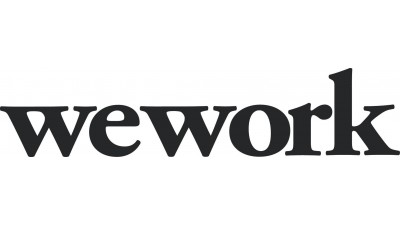How WeWork Brings Value To A Landlord’s Property

Shifting trends in the workforce, and the rise of the freelance worker, have led to demand for flexible, community-oriented workspaces across the world. Manhattan alone has a record 5.3M SF of shared office space, a testament to the growing supply.
While some landlords have invested in upgraded offices, others are teaming up with user-focused, service-rich office environments that support collaboration, creative thinking and work/life integration. Landlords have started to see the benefit of partnering with an operator, rather than taking on the burden of workspace logistics and management.
Many global real estate partners have partnered with WeWork to meet the needs of a workforce that favors open floor plans and communal spaces over isolated cubicles.
When WeWork enters new markets and buildings, it creates a network effect. The more tenants that rent space in a location, the more members can meet like-minded people. A similar chain reaction happens when WeWork partners with businesses that provide services to its members, like Zipcar and AT&T. The more users WeWork attracts, the more valuable it becomes to its partners, which increases their willingness to partner with the co-working giant.
WeWork has the scale and leverage to negotiate the best rates for construction, operating expenses and services for members, and can provide better returns for their real estate partners. After a study conducted on five New York City WeWork locations, Falkon found that since lease commencement, WeWork increased property value by an average of 25.4%.
Miguel McKelvey and Adam Neumann founded WeWork with the mission to combine modern, shared spaces with an emphasis on community. Over the past seven years, its network has expanded to 156 locations in 49 cities and 15 countries to create unmatched global service and a community of nearly 130,000 members.
From off-the-shelf solutions to customized, collaborative workspaces dedicated to individual companies, WeWork provides workspaces for members of all sizes and needs, and its increasing number of enterprise-level members speaks to a growing trend of larger companies embracing the ease of co-working.
WeWork changes the landscape of the submarket when it leases space in a building, adding a dynamic and diverse workforce to buildings that would otherwise have one or two tenants leasing the entire space. The collaboration and inspiration from its members helps shape not only the building perception but also the greater neighborhood by attracting professionals from a diverse range of industries.
“The energy and vibrancy of our members and the strength of the WeWork brand are a powerful combination," WeWork Head of Global Real Estate Operations Matt Fry said. "We can play a large part in changing the perception of a building or an area and have shown that having WeWork in a building adds value to the real estate."
The financial perks appeal to landlords who are looking to partner with WeWork. The company's business model pays fixed rents to landlords instead of variable costs affected by WeWork member pricing, ensuring consistent revenue. WeWork provides substantial convenience, community and network value, with cost savings ranging from 25% to 50% for member companies looking for office space.
For additional information on WeWork, its product offerings, partnership opportunities and broker referral program, click here.

